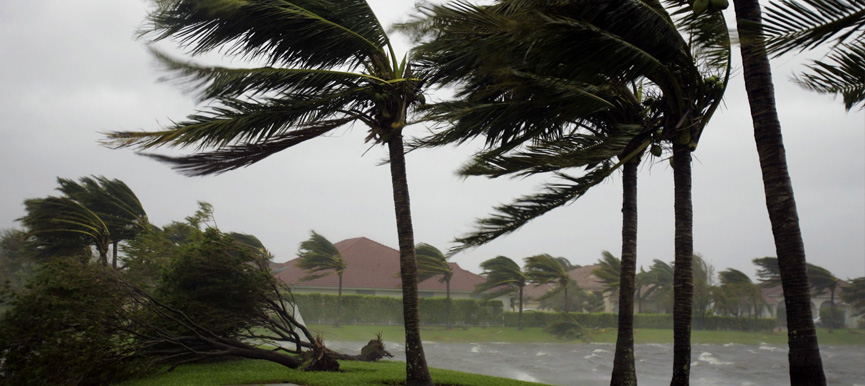Atlantic hurricane season is under way and will run through the end of November. While peak season is usually in August, September and October, hurricane preparedness, for personal and business properties, should be done well in advance of any forecasted storms.
Clear, concise and well-practiced hurricane plans have the following advantages:
- Personnel respond quicker and more effectively than if no planning has occurred.
- Needed information, supplies and equipment are identified before disaster strikes.
- Advance preparations once a hurricane or tropical storm watch is issued will be understood and implemented.
- A clear assignment of tasks and responsibilities can be made.
For properties you own, you’ll want to assemble your emergency response team to discuss the availability of personnel and the procedures you’ll take in the event of a tropical storm or hurricane warning. For locations you lease, you’ll want to work with the landlord to ensure they have the proper materials and procedures to adequately prepare for the storm. Serving on their emergency response team is a good idea.
Keep in mind that the effects of a hurricane or tropical storm can be felt for… miles inland, not just along the coast. Inland flooding can be a huge concern, even if you’re not physically located in a flood zone.
When a tropical storm or hurricane watch is issued, follow local weather and news reports closely to determine the path of the storm and learn about any advisory or mandatory evacuation order from public emergency management authorities.
How to prepare your workplace
- Cover all windows and glass doors with securely fastened, impact-resistant shutters or other approved window protection systems with proper mounting fixtures.
- Choose a safe room in your house that’s free of windows and doors.
- Assemble a disaster supply kit that includes at least a week’s supply of food and water; a first aid kit with medicines, especially any prescription drugs; special items for babies, the elderly and pets; flashlights; a battery-powered radio with extra batteries; and a NOAA Weather Radio. Store this kit in your safe room.
- Learn the proper procedure for turning off your natural gas meter to avoid any potential leaks or explosions.
How to prepare your home
- Review existing emergency response plans, which should include current contact information for employees, business partners and vendors; a pre-determined group of employees who will perform specific tasks to prepare for an event; communication procedures; and a list of needed items and materials.
- Check the building’s exterior to ensure the roof is in good condition and any items that can become windborne (trash cans, furniture, trailers and outdoor equipment) are removed or tied down.
- Cover all windows and glass doors with hurricane shutters or plywood. Close and latch all other exterior doors, and brace large doors at shipping and receiving docks.
- Remove items from the windowsill and place papers and files in cabinets or other waterproof containers.
- Check your equipment and systems to ensure all fire protection equipment, and back-up electrical systems such as uninterruptible power supplies (UPS systems) generators, sump pumps and other water removal systems are working properly. Ensure all fuel-fired equipment is full. Depending on the operation, consider an orderly shutdown of equipment and utilities (i.e., natural gas and electrical systems).
Adapted from http://blog.willis.com/2017/06/hurricane-preparedness-for-homes-and-businesses/



